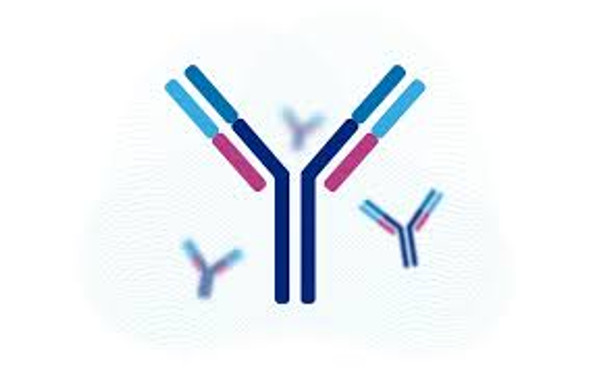Description
TGFBR1 Polyclonal Antibodyis available at Gentaur for next week delivery.
Specificity:
Alternative Names: P36897
Immunogen: Recombinant Human TGF-beta receptor type-1 protein (157-244AA)
Technical Notes: For Research Use Only. Not for use in diagnostic procedures, drug use, or for administration to humans or animals.
Application: ELISA, WB, IHC, IF; Recommended dilution: WB:1:500-1:5000, IHC:1:1000-1:2000, IF:1:200-1:500
Restriction:
Comments: Preservative: 0.03% Proclin 300; Constituents: 50% Glycerol, 0.01M PBS, PH 7.4; Transmembrane serine/threonine kinase forming with the TGF-beta type II serine/threonine kinase receptor, TGFBR2, the non-promiscuous receptor for the TGF-beta cytokines TGFB1, TGFB2 and TGFB3. Transduces the TGFB1, TGFB2 and TGFB3 signal from the cell surface to the cytoplasm and is thus regulating a plethora of physiological and pathological processes including cell cycle arrest in epithelial and hematopoietic cells, control of mesenchymal cell proliferation and differentiation, wound healing, extracellular matrix production, immunosuppression and carcinogenesis. The formation of the receptor complex composed of 2 TGFBR1 and 2 TGFBR2 molecules symmetrically bound to the cytokine dimer results in the phosphorylation and the activation of TGFBR1 by the constitutively active TGFBR2. Activated TGFBR1 phosphorylates SMAD2 which dissociates from the receptor and interacts with SMAD4. The SMAD2-SMAD4 complex is subsequently translocated to the nucleus where it modulates the transcription of the TGF-beta-regulated genes. This constitutes the canonical SMAD-dependent TGF-beta signaling cascade. Also involved in non-canonical, SMAD-independent TGF-beta signaling pathways. For instance, TGFBR1 induces TRAF6 autoubiquitination which in turn results in MAP3K7 ubiquitination and activation to trigger apoptosis. Also regulates epithelial to mesenchymal transition through a SMAD-independent signaling pathway through PARD6A phosphorylation and activation.
Additional Information
Species Reactivity: |
Human |
Size: |
100ug |
Host: |
Rabbit |
Clonality: |
Polyclonal |
Concentration: |
-20°C |
Storage: |
1 year |
Expiry Date: |
Ice packs |
Shipping Condition: |
Conjugation service and the corresponding secondary antibody are available. |






